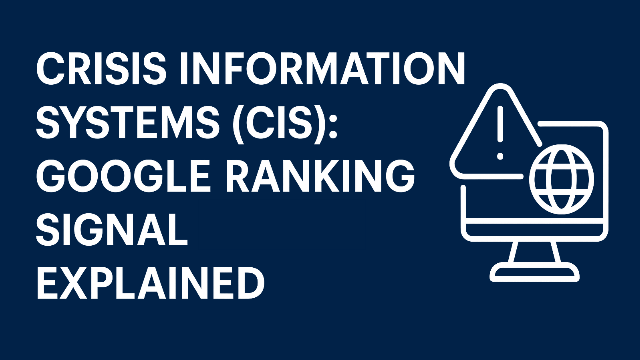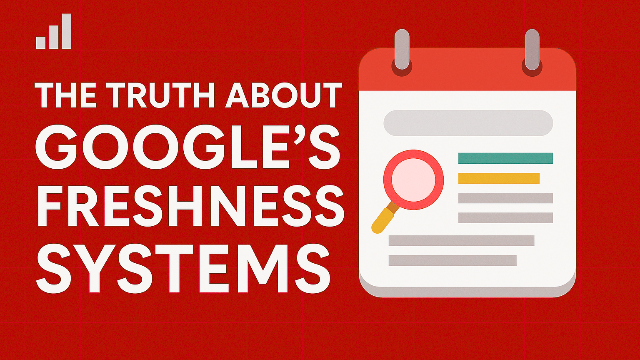Fixing Keyword Cannibalization Without Removing Pages
Keyword cannibalization is a common issue in search engine optimization (SEO). It occurs when multiple pages on the same website target the same keyword or topic. This can confuse search engines, which then struggle to determine which page to rank.
The result? All pages might end up with lower rankings, reducing the site’s overall visibility. But don’t worry; you can fix keyword cannibalization without removing any pages. Here’s how.
Understanding Keyword Cannibalization
Imagine you own a bakery and have multiple signs advertising the same chocolate cake. Customers might get confused about which sign to follow, or worse, they might not notice any sign at all. This is similar to what happens with keyword cannibalization. When several pages on your website focus on the same keyword, search engines like Google get confused and might not rank any of them highly.
Why It Matters
Keyword cannibalization dilutes your page authority. Instead of having one strong page that ranks well for a keyword, you have several weaker pages. This can lead to:
- Reduced Page Authority: Multiple pages splitting the ranking signals.
- Lower Conversion Rates: Users might land on a less relevant page.
- Wasted Crawl Budget: Search engines spend more time crawling similar pages.
Steps to Fix Keyword Cannibalization
1. Content Consolidation
Combining similar pages into one comprehensive page can be a powerful solution. Here’s how to do it:
- Identify Competing Pages: Use tools like Google Analytics and Google Search Console to find pages targeting the same keyword.
- Merge Content: Combine the content from these pages into one. Ensure it’s well-structured and comprehensive.
- Set Up 301 Redirects: Redirect the old pages to the new consolidated page. This tells search engines that the new page is the primary one.
Example: If you have three pages about “chocolate cake recipes,” merge them into a single page that covers all aspects of chocolate cake recipes comprehensively.
2. Differentiate Keywords
Adjust the keywords each page targets to focus on different aspects of the topic. This way, each page has a unique purpose and reduces competition among your own pages.
- Use Long-Tail Keywords: Instead of all pages targeting “chocolate cake,” one could target “easy chocolate cake recipe” and another “gluten-free chocolate cake.”
- Subtopics: Focus on different subtopics for each page.
Example: One page could be about “chocolate cake decoration ideas” while another focuses on “chocolate cake baking tips.”
3. Update Internal Links
Revise your internal linking structure to support the main page you want to rank for the keyword. Use clear anchor text that aligns with the targeted keyword.
- Internal Link Audits: Regularly audit your internal links to ensure they point to the most relevant page.
- Strategic Linking: Direct links from other related pages to your main page to build its authority.
Example: If “chocolate cake recipe” is your main page, ensure other dessert pages link to it using that anchor text.
4. Use Canonical Tags
Canonical tags tell search engines which page is the primary one when you have similar content. This helps prevent duplicate content issues and consolidates link equity.
- Add Canonical Tags: On the less important pages, add a canonical tag pointing to the main page.
Example: For two pages about “chocolate cake,” the less detailed one should have a canonical tag pointing to the more comprehensive page.
5. Optimize On-Page SEO
Make sure each page has distinct on-page SEO elements such as titles, meta descriptions, headers, and content.
- Unique Titles and Meta Descriptions: Each page should have a unique title and meta description that reflect its specific focus.
- Clear Headers: Use headers (H1, H2, etc.) to structure your content and make the page’s purpose clear.
Example: If your main page is “Ultimate Chocolate Cake Recipe,” ensure the title, meta description, and headers reflect this specific focus.
6. Enhance Content Quality
High-quality content is crucial for ranking well. Make sure each page offers valuable and unique information.
- Detailed Guides: Create in-depth guides that cover all aspects of the topic.
- Multimedia Content: Use images, videos, and infographics to enrich your content.
Example: Include step-by-step photos or a video tutorial for your chocolate cake recipe page.
7. Build External Links
Backlinks from other websites can significantly boost the authority of your main page. Focus on acquiring quality backlinks.
- Outreach Campaigns: Reach out to bloggers, industry sites, and influencers to link to your main page.
- Guest Blogging: Write guest posts for reputable sites with a link back to your main page.
Example: Write a guest post about “chocolate cake baking tips” and link back to your ultimate chocolate cake recipe.
Tools and Resources
Google Search Console
Google Search Console helps identify keyword cannibalization by showing which pages rank for the same keywords. Use the Performance report to see which queries lead to multiple pages.
Moz Keyword Explorer
Moz Keyword Explorer can help in finding new keyword opportunities to differentiate your content. It provides insights into keyword difficulty, search volume, and potential keyword variants.
Ahrefs Site Explorer
Ahrefs Site Explorer lets you analyze your website’s backlinks and find which pages are competing for the same keywords. It’s a powerful tool for keyword research and competitor analysis.
Conclusion
Keyword cannibalization can hinder your SEO efforts, but it’s fixable without removing any pages. By consolidating content, differentiating keywords, updating internal links, using canonical tags, optimizing on-page SEO, enhancing content quality, and building external links, you can improve your site’s search engine rankings. Implementing these strategies will help ensure that each page on your website serves a unique purpose and reaches its full potential.




